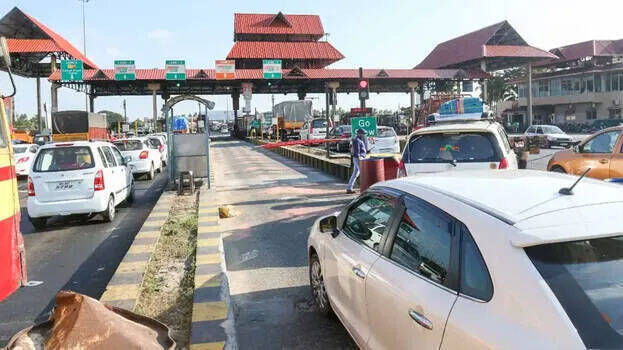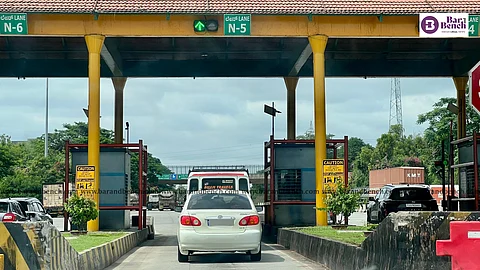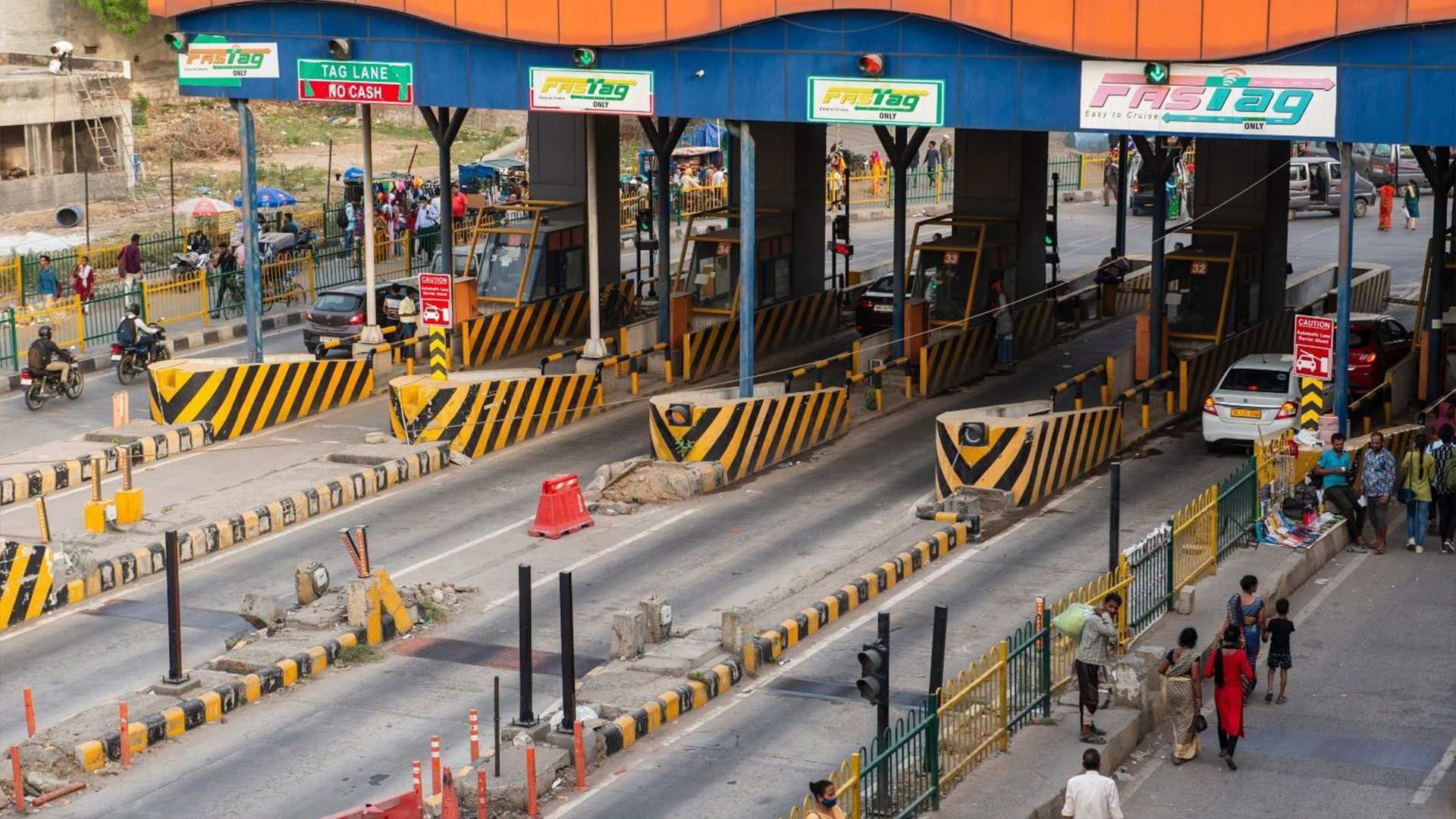The Kerala High Court has ordered a four-week suspension of toll collection at the Paliyekkara Plaza on NH‑544 in Thrissur. The bench, comprising Justices A. Muhamed Mustaque and Harisankar V. Menon, expressed concern over the severe congestion on the Edappally–Mannuthy stretch, caused by ongoing infrastructure projects. The court ruled that continuing to collect tolls under such compromised conditions violates public trust. Toll operations will remain paused until the central government, in consultation with NHAI, the state Chief Secretary, and the toll operator, implements corrective measures.
The Kerala High Court’s decision has drawn mixed reactions from various stakeholders. While commuters and local residents have largely welcomed the move, citing long-standing grievances about traffic congestion and road conditions, toll operators and infrastructure authorities are reportedly concerned about the financial implications of a prolonged halt. For years, users of the Edappally–Mannuthy highway stretch have raised concerns about delays, narrow lanes, poorly managed diversions, and dangerous bottlenecks that turn everyday travel into a challenge.
The court’s order has now placed significant pressure on the National Highways Authority of India (NHAI) and its contractors to expedite the pace of roadworks and ensure better project management. Multiple infrastructure-related complaints have plagued this highway for over a year. Despite several earlier assurances given by NHAI, actual on-ground improvements have remained inconsistent. The court highlighted this pattern of promises not being matched by action, which ultimately resulted in the temporary toll suspension.
This ruling may set a powerful precedent for future toll-related litigations. Across India, toll plazas continue to collect fees regardless of road conditions, leading to widespread public dissatisfaction. Legal experts suggest that this decision could embolden civic action in other states where infrastructure quality has similarly failed to meet minimum benchmarks. If other High Courts adopt similar reasoning, the pressure on highway authorities to link toll charges with service delivery might increase significantly.
Meanwhile, the four-week deadline acts as a countdown for authorities to deliver tangible outcomes. The court’s ruling explicitly calls for collaborative solutions between the central government, NHAI, and the state administration. It is not merely a pause in toll collection—it is a call to action. Failure to meet the expectations set by the court could lead to further judicial scrutiny or even an extension of the toll suspension.

Court: Toll Requires Safe, Unhindered Roads
Emphasizing the public’s right to smooth travel, the court noted that tolls cannot be justified if road conditions fail to meet basic standards. It asserted that toll collection depends on the fulfillment of statutory expectations—safe, accessible, and unobstructed road usage—and intervened to uphold commuter rights.
Escalating Legal Pressure on NHAI
This ruling follows a series of earlier directives from the court. In June and July, the court challenged NHAI’s continuation of toll collection despite ongoing construction that severely hampered travel. It questioned the fairness of charging tolls when commuters were unable to use the highway smoothly. NHAI repeatedly asked for more time, but the court pressed for immediate relief to impacted travelers.
Several transport unions have weighed in on the situation, stating that the toll suspension is a step in the right direction but only scratches the surface of broader infrastructural neglect. They argue that the current scenario highlights how revenue generation has long overshadowed the fundamental goal of public safety and convenience. For commercial drivers, especially those who traverse multiple states, the conditions at toll booths often mirror this imbalance. The hope is that this judicial intervention will force authorities to re-prioritize the needs of road users over financial metrics.
Environmental experts have also chimed in, pointing out that the traffic chaos near the Paliyekkara toll booth has led to increased emissions and fuel wastage. Long idling times, stop-and-go movement, and unplanned detours around construction sites all contribute to air pollution. The four-week suspension gives a chance not only to fix traffic flow but also to evaluate the environmental impact of mismanaged infrastructure projects. Some activists are demanding that future toll operations be subjected to environmental audits to ensure sustainability is not compromised.
Local residents, especially those in Thrissur and nearby areas, have expressed a mix of relief and skepticism. Many claim that complaints about the toll plaza’s inefficiencies have been raised for years but ignored. While they welcome the court’s strong stance, there’s a lingering fear that this may be a temporary solution that fades from public memory after a few weeks. Unless permanent improvements are implemented and maintained, residents worry that they will soon find themselves back at square one.
In contrast, toll operators have expressed concerns about financial losses due to the halt. They argue that the toll collected funds ongoing maintenance and that such disruptions could affect their contractual obligations and operational planning. However, the court made it clear that commercial interests cannot override public inconvenience. Legal experts believe this could prompt toll operators to adopt better project tracking mechanisms to avoid such situations in the future.
Urban planners say that the Paliyekkara issue is symptomatic of a larger urban planning failure across India, where infrastructure projects often begin without considering traffic density, urban sprawl, or emergency services. The idea that roads are merely transit channels rather than lifelines for economic and social interaction needs to be revisited. The planners suggest that all future highway projects include mandatory contingency plans for congestion management and mid-project audits.
Finally, this event has triggered broader political debates. Opposition parties in Kerala have criticized both the state and central governments for failing to ensure proper coordination and timely delivery of public infrastructure. They accuse authorities of prioritizing ribbon-cutting ceremonies over sustained maintenance. With elections looming in various parts of the country, infrastructure governance and toll management may well become key talking points on the campaign trail.


Four-Week Pause Signifies Heightened Accountability
The four-week suspension signals judicial intolerance toward unresolved infrastructure delays that burden the public. The High Court urged coordinated action from the central and state governments and NHAI to restore road functionality and resolve congestion swiftly.
The court’s intervention has also reignited public discourse around the accountability of private contractors and public-private partnership (PPP) models in India’s infrastructure development. Many civic groups are now questioning the lack of transparency in such agreements, especially when service quality dips but tolls continue unabated. Citizens argue that there should be stricter clauses in PPP contracts linking payment collection to service delivery benchmarks. This case, they believe, has laid bare a systemic flaw—where the public bears the brunt of delays while concessionaires continue to profit. The call now is for regulatory frameworks that ensure accountability, penalties for non-compliance, and timely redressal mechanisms.
Broader Implications and Next Steps
— Toll operators and NHAI face legal and financial scrutiny. Any loss to concessionaires may be pursued through legal recourse if the court deems it justified.
— Central agencies must now engage proactively to ease traffic, improve construction management, and consider fair toll-collection policies tied to service quality.
— Commuters can expect relief in the coming weeks—but sustained infrastructure improvements will determine long-term trust and mobility.
Commuters who use this route daily have already reported noticeable improvements in traffic flow since the toll collection was halted. Many believe that the decision has exposed how toll plazas often become choke points when compounded by construction mismanagement. Without the need to stop and pay tolls, vehicles are now moving more freely through the Paliyekkara stretch. However, there is also a rising concern about how long this reprieve will last and whether systemic changes will follow.
Local businesses operating along the highway have also welcomed the move. Delivery trucks, buses, and service vehicles had been facing long delays due to congestion, often causing economic disruptions. Small business owners said that the smoother traffic in recent days has helped reduce transit time and logistics costs. They are urging authorities to use this break wisely and not simply return to the previous status quo after four weeks.
From a legal standpoint, the High Court’s ruling reflects a deeper interpretation of toll contracts as conditional social contracts, not merely commercial arrangements. If infrastructure agencies cannot ensure uninterrupted and safe travel, courts may increasingly view continued toll collection as unjust enrichment. Public interest litigation (PIL) advocates view this decision as a milestone in asserting commuter rights and holding toll operators accountable.


The court’s insistence on collaboration underscores the complexity of India’s infrastructure ecosystem, where central and state authorities often operate with overlapping but disconnected mandates. In this case, successful resolution requires synchronized action—NHAI to expedite pending work, the state to manage local traffic, and private operators to comply with fair service norms. This ruling is a push towards holistic and responsive governance in the infrastructure sector.
Media coverage and public discourse following the verdict have emphasized the court’s proactive stance in defending everyday citizens’ rights. For many travelers, this ruling goes beyond toll gates; it signifies recognition of their daily hardships and acknowledgment of systemic neglect. Some local civil groups have even begun discussions on forming highway watchdog panels to monitor road quality and report deviations regularly.
Looking ahead, the next few weeks will be critical in determining how seriously the authorities take the court’s mandate. Will this be a temporary break or the start of meaningful reform? That depends on whether project management accelerates, deadlines are respected, and road standards are visibly improved. If not, the judiciary might step in again—with stronger actions and broader consequences for failing agencies.
Follow: Kerala Government
Also read: Home | Channel 6 Network – Latest News, Breaking Updates: Politics, Business, Tech & More

